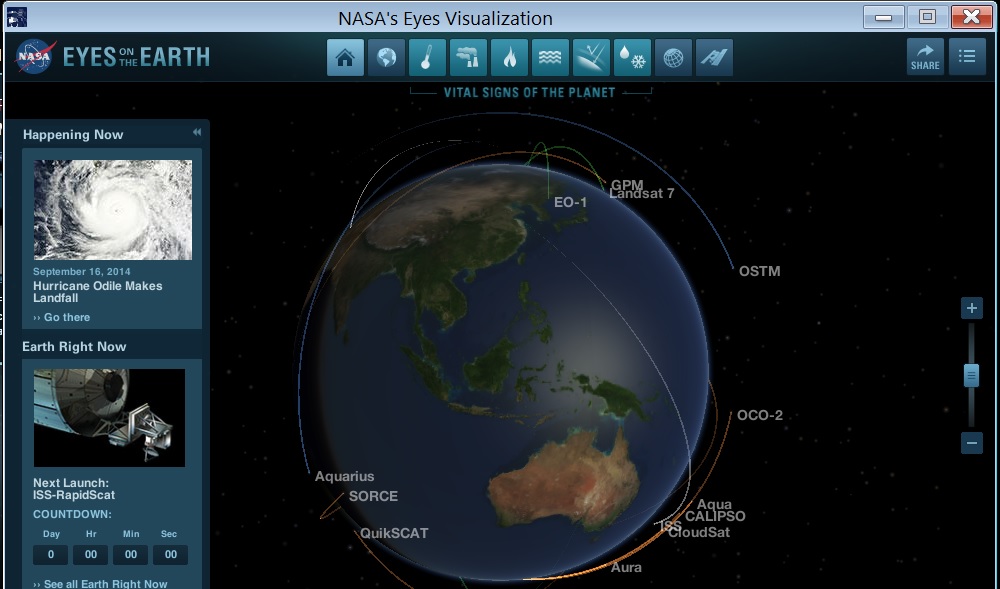
There are several great tools available online designed to educate the public about space discoveries. The best ones use data gathered by our space faring machines and help put it all into an understandable form. Which is why NASA has developed the “NASA’s Eyes” program.
NASA’s Eyes is a program that can be used for multiple uses regarding virtual planetary exploration and understanding. The program can be downloaded from this link. It is a good tool to use to help in our understanding of some of the things going on here on Earth, too. Honestly, the more I play with this particular program, the more I like it. There’s a lot of data NASA has collected over the years about a lot of things, and it’s great that I can look at it in this form and play around with it.

There are three primary topics of the NASA’s Eyes exploration tool. “Eyes on the Earth” focuses on the Earth, the Earth’s environment, characteristics, the satellites looking at the Earth, and the payloads on the satellites used to gather data all about the Earth. You can load what NASA calls “datasets,” data about a particular topic, such as ocean salinity, that’s been put together over the years. The dataset then is displayed to show some interesting characteristics about things we take for granted, like gravity (image above).

“Eyes on the Solar System” has different kinds of datasets you can play with, but instead of the Earth, you can generally explore the Solar System. There are different missions you can focus on, and see in great detail. The Cassini mission (below) around Saturn is pretty nifty.

If you do get tired of the planets in our Solar System, there’s always the opportunity to look beyond, which is what the third set of datasets, called “Eyes on Exoplanets,” allows you to do. Whether you wish to see exoplanets up close or just zoom out to admire the beauty of the galaxy we live in (below), Eyes on Exoplanets will help you.
Have a great time exploring space and please don’t forget to send a postcard :-).
